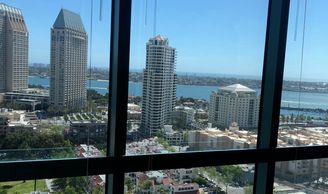Injuries are hard to deal with. They cause pain and can restrict movement or normal functioning of the body. However, the pain, stress and mental agony caused by injuries get worse because of the additional losses you may suffer.
The extent of losses of a motorcycle accident victim is directly dependent on the nature and extent of their injuries. Victims with terrible injuries causing permanently disabilities can see their financial losses run into millions of dollars. In contrast, a victim with a broken elbow may face losses of a few thousand dollars. It does not mean that such a victim does not deserve compensation. In fact, if anyone suffers any losses, they must get compensation from the at-fault party.
Losses suffered in accidents vary from case to case. The best way to know the estimated worth of your claim is to contact our office for a FREE evaluation of your case.
Here are some examples of the usual losses a motorcyclist may face after a crash.
-
Medical expenses.
In California, what medical expenses are considered damages in a personal injury case?
A person injured by another’s tortious conduct is entitled to recover the reasonable value of medical care and services reasonably required and attributable to the tort.
An injured plaintiff is entitled to recover the reasonable value of medical services that are reasonably certain to be necessary in the future. Every motorcyclist who experiences a crash must get medical attention right away. First aid may be needed at the accident scene, to be followed by an ambulance ride to the hospital. Even a medevac helicopter may be needed, in case of critical injuries that immediately threaten the victim’s life.
At the hospital, the victim will initially get treatment in the emergency room. Later, doctors may discharge them from there or admit them in the hospital for a longer stay, depending on the nature of their injuries. Hospitalization is common for injuries needing surgery. Injury victims may incur costs for surgeries, post-op care, rehabilitative therapy, physical therapy, home health care, medications, medical equipment and more.
-
Lost earnings.
We know of no rule of law that requires that a plaintiff establish the amount of his actual earnings at the time of the injury in order to obtain recovery for loss of wages although, obviously, the amount of such earnings would be helpful to the jury in particular situations.To entitle a plaintiff to recover present damages for apprehended future consequences, there must be evidence to show such a degree of probability of their occurring as amounts to a reasonable certainty that they will result from the original injury.Many injuries can render you unable to attend your work for days, months, or even forever. In some cases, off-work rest is a mandatory part of treatment.
Certain injuries may also keep you from doing your specific job or tasks. For example, you can’t do construction work with a broken leg. Neck and backbone injuries also can affect many jobs, like sitting in an office chair for hours or driving a truck. Many people lose income for every minute they are unable to work. Even if your employer grants you some paid time off, you can run out the allowed limit quickly and will have to take unpaid leave. The income loss of a few days or weeks can create financial stress and even shake off your household budget.
-
Future losses.
Loss of earning power is an element of general damages which can be inferred from the nature of the injury, without proof of actual earnings or income either before or after the injury, and damages in this respect are awarded for the loss of ability thereafter to earn money.The test for lost earning capacity is not what the plaintiff would have earned in the future but what she could have earned. Such damages are awarded for the purpose of compensating the plaintiff for injury suffered, i.e., restoring . . . her as nearly as possible to her former position, or giving her some pecuniary equivalent. Impairment of the capacity or power to work is an injury separate from the actual loss of earnings.
When you consider your injury-related losses, you may assume it only means the medical bills and loss of income for the time you missed your work. Most people won’t think of the losses they may incur in the future. It is important to understand that the costs of your injuries don’t automatically come to a close with the resolution of your insurance claim or legal case.
For many people, the losses can continue, sometimes indefinitely and sometimes for the rest of their lives. Our team of lawyers knows how to fairly estimate the costs of the medical care you might need in the future. They will also consider and calculate your future lost income as well as lost earning power if the injuries have permanently affected your ability to work.
-
Noneconomic losses.
In general, courts have not attempted to draw distinctions between the elements of ‘pain’ on the one hand, and ‘suffering’ on the other; rather, the unitary concept of ‘pain and suffering’ has served as a convenient label under which a plaintiff may recover not only for physical pain but for fright, nervousness, grief, anxiety, worry, mortification shock, humiliation, indignity, embarrassment, apprehension, terror or ordeal.
Admittedly these terms refer to subjective states, representing a detriment which can be translated into monetary loss only with great difficulty. But the detriment, nevertheless, is a genuine one that requires compensation, and the issue generally must be resolved by the ‘impartial conscience and judgment of jurors who may be expected to act reasonably, intelligently and in harmony with the evidence.
Not all losses come directly from financial affairs. The law, therefore, allows severely injured accident victims to also seek compensation for their noneconomic losses. These losses may include physical pain as well as suffering from injuries. They also include mental and emotional trauma and suffering resulting from the accident itself or from dealing with the wounds, loss of enjoyment of life because of restrictive injuries, or permanent impairment, disfigurement, or disabilities they would deal with for the rest of their life. -
Loss of Consortium.
Generally, household services damages represent the detriment suffered when injury prevents a person from contributing some or all of his or her customary services to the family unit. The justification for awarding this type of damage as part of the loss of future earnings award is that the plaintiff should be compensated for the value of the services he would have performed during the lost years which, because of the injury, will now have to be performed by someone else. -
Wrongful Death of an Adult
Under Code of Civil Procedure section 377.61, damages for wrongful death are measured by the financial benefit the heirs were receiving at the time of death, those reasonably to be expected in the future, and the monetary equivalent of loss of comfort, society, and protection.
Where, as here, decedent was a husband and father, a significant element of damages is the loss of financial benefit he was contributing to his family by way of support at the time of his death and that support reasonably expected in the future. The total future lost support must be reduced by appropriate formula to a present lump sum which, when invested to yield the highest rate of return consistent with reasonable security, will pay the equivalent of lost future benefit at the times, in the amounts and for the period such future benefit would have been received.
These benefits include the personal services, advice, and training the heirs would have received from the deceased, and the value of her society and companionship. ‘The services of children, elderly parents, or nonworking spouses often do not result in measurable net income to the family unit, yet unquestionably the death of such a person represents a substantial “injury” to the family for which just compensation should be paid.[xiii]
Factors such as the closeness of a family unit, the depth of their love and affection, and the character of the decedent as kind, attentive, and loving are proper considerations for a jury assessing noneconomic damages.
The plaintiff may claim the following damages:
– Value of financial support to the family
– Loss of gifts or benefit
– Funeral and burial expenses
– Value of household services
– Loss of love
– Loss of companionship
– Loss of comfort
– Loss of care
– Loss of assistance
– Loss of protection
– Loss of affection,
– Loss of society
– Loss of moral support
– Loss of sexual relations
– Loss of training and guidance
-
Wrongful Death of a Child
Where the deceased was a minor child, recovery is based on the present value of reasonably probable future services and contributions, deducting the probable cost of rearing the child.[xv]The damages may include:
– Value of financial support to parent(s)
– Loss of gifts or benefit to the parent(s)
– Funeral and burial expenses
– Value of household services
– Loss of love
– Loss of companionship
– Loss of comfort
– Loss of Care
– Loss of assistance
– Loss of protection
– Loss of Protection
– Loss of society
– Loss of moral support.
The award of any compensation does not include the following:
– Grief, sorrow, or mental anguish
– Minor’s pain and suffering -
Punitive Damages
Under California Civil Code section 3294, a plaintiff may be award punitive damages in personal injury cases. The plaintiff must be by “clear and convincing evidence” that the defendant’s conduct was malicious, oppressive, or fraudulent. The purpose of award punitive damages is to: a) punish the defendant, and 2) serve as a deterrent to the defendant and society from similar conduct.“Malice” means conduct which is intended by the defendant to cause injury to the plaintiff or despicable conduct which is carried on by the defendant with a willful and conscious disregard of the rights or safety of others.“Oppression” means despicable conduct that subjects a person to cruel and unjust hardship in conscious disregard of that person’s rights.
“Fraud” means an intentional misrepresentation, deceit, or concealment of a material fact known to the defendant with the intention on the part of the defendant of thereby depriving a person of property or legal rights or otherwise causing injury.
Conclusion
The purpose of an insurance claim or personal injury case is to seek damages, so as to compensate for all your losses. The insurance company or any other liable party will not simply take your word on the volume of your claim. You will need to provide the evidence to support your claim, something which can be more difficult than you might imagine.
Medical expenses incurred in the past and lost wages are relatively easier to prove, as you can show your bills and payment receipts to demonstrate those monetary losses. But, future losses and noneconomic losses are too complex in their nature and these are much difficult to calculate and demonstrate.
Our law firm regularly pursues cases of the victims who have serious injuries and will have future and noneconomic losses as part of their claim for damages. We are experts in seeking opinions from experts to calculate your future medical costs and lost earnings. We are also highly familiar with the California legal system and how it treats noneconomic damages, so we can aptly assess your losses and determine the amount you deserve.
Calculating money damages is one of many crucial aspects of a motorcycle accident case, as you are also required to prove who was liable for the crash.
Call or Write for a Free Confidential Consultation
If you or someone you love need an a aggressive and compassionate attorney who will listen and aggressively protect your interest, we invite you to call attorney Brad for a free consultation.
$0 Upfront

There is no money upfront.
$0 Unless We Win

No Fee – Unless We Win
98% Success Rate

98% of clients’ cases won.
Insurance Insider

I’ve worked at a prestigious international law firm, Bremer Whyte et. al., serving major insurance companies by defending insurance companies and their insureds who were sued for millions of dollars.
I Care

“In both cases, he combined skills and passion to help these clients to maintain their self sufficiency and dignity.” SDLVP
My success is measured in the real differences made to my clients’ quality of life. I focus on achieving the most exceptional and fairest compensation for my clients.

